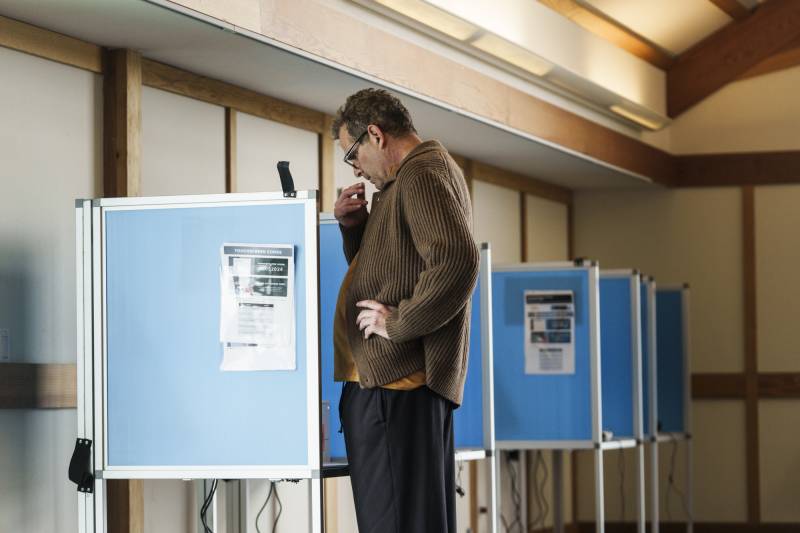Updated 12 p.m. Wednesday
Alameda County voters appeared likely to adopt California’s guidelines for recalling elected officials, replacing county rules, a move that would raise the number of signatures required to get a recall on the ballot and give local election officials additional time to schedule a vote.
Measure B was leading by a wide margin in early returns Tuesday night, a victory for the county’s chief legal adviser, who requested the change, arguing that the county’s rules, written in 1926, were outdated and contained legally questionable requirements that other jurisdictions had already rejected.
The rather technical measure drew little attention from the general public during the election, and no official spending for or against it was registered with the county.
Nonetheless, it could have far-reaching implications. This year, voters in Alameda County may have the chance to weigh in on several recalls of elected county and local officials, including efforts to oust District Attorney Pamela Price.
The campaign to recall Price submitted petition signatures to the registrar on Monday.
Donna Ziegler, the county counsel, who advises the Board of Supervisors, argued that adopting the state’s guidelines was an easy way to update the county’s antiquated rules and help it avoid lawsuits stemming from its registrar failing to comply with “likely unattainable” timelines.

